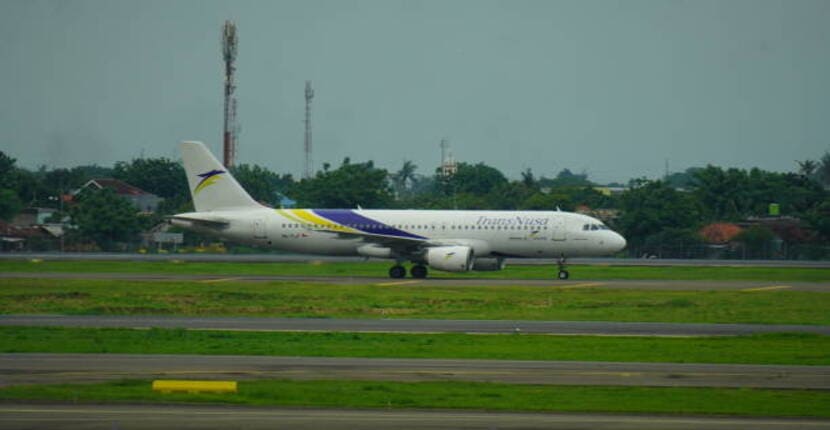Revolutionizing Corporate Travel: The Tech-Enabled Future of Business Trips, ET TravelWorld

Corporate travel is rapidly evolving—growing in size, complexity, and strategic importance. In 2024, global business travel spending reached USD 1.5 trillion. India, now the ninth-largest business travel market globally and the fourth in the Asia-Pacific region, is at the heart of this shift. But behind these numbers lies a much deeper context: companies are no longer just managing trips but rethinking travel as a strategic, tech-enabled, and people-first experience.
Nearly three out of four travel managers reported increased bookings and budgets in 2024. Conferences and strategy meetings returned in full swing, with over 60% of business travellers planning to attend at least one such trip.
What’s different now is not just the volume—it’s the way businesses approach travel, which is undergoing a quiet revolution. It’s no longer just about booking a flight or finding a hotel—it’s about creating seamless, meaningful journeys that respect the time and expectations of those who travel, those who manage the process, and those who account for it.
Employees expect quick approvals, personalisation, and travel that fits their preferences and schedules. Admins want to manage these requests without juggling fragmented vendor lists and endless calls. Finance teams are looking for clarity on spending, GST compliance, and value delivered.
At the same time, a cultural shift in traveller expectations is taking shape. One of the biggest changes is the rise of “bleisure”—where employees extend business trips for leisure. In 2024, about 29% of Indian business travellers added personal days to their work trips. This mirrors a global pattern where employees seek more balance, flexibility, and well-being, even while travelling for work.
To meet these changing needs, technology has become central to how travel is managed. Modern platforms no longer just book flights—they combine air, hotel, taxi, visa, and policy compliance into a single system. These platforms allow for seamless bookings, real-time approvals, automated invoicing, and built-in tax compliance. In India, expectations are rising: 72% of travellers prefer to have taxi bookings integrated, and 63% want visa services within the same platform.
Not every company operates the same way. Some larger enterprises opt for customised setups, where the travel desk functions like an in-house team. Midsize organisations often partner with travel management firms that balance structure and flexibility. Smaller businesses may still rely on open-market portals or local agents, but this often brings its own set of challenges, with non-compliance being a major concern.
Therefore companies that previously relied on unmanaged travel—where employees booked everything independently—are now embracing self-booking tools that offer both flexibility and structure. Mobile-first interfaces, direct billing options, GST/TDS-compliant receipts, and round-the-clock support are simplifying travel for both users and finance teams.
Support, in fact, has become one of the biggest differentiators. Travellers are increasingly expecting concierge-style assistance that’s proactive and personal. Not through a ticketing system or IVR maze, but via accessible, trained professionals who understand urgency. Technology is helping there too—by routing queries to the right agent, preloading itinerary data, and automating repetitive requests.
Behind the scenes, data is playing a powerful role. Every booking generates insights on spending, preferences, and policy compliance. Dashboards built for different roles—whether it’s a CFO, travel admin, or department head—make this data usable by monitoring trends in real time, comparing negotiated hotel rates with market pricing, and preventing out-of-policy bookings before they happen. This shift from manual oversight to data-driven decision-making is improving transparency, cost control, and planning.
Artificial intelligence is becoming a key enabler. AI-powered tools can suggest best-fit flights and hotels, based on past choices and company rules. They alert travellers to risks such as weather disruptions or political unrest, and in some cases, even rebook trips automatically when plans change. But it’s important to understand—AI is not replacing humans. It’s assisting them. Travel managers are still in control; AI just helps make their work faster, smarter, and more focused.
Compliance, often seen as a post-trip task, is now fully embedded in the travel process. Embedding company travel policies directly into the booking flow— often referred to as ‘policy mapping’—ensures that travellers don’t just have options, but the right options. Tools automatically check for policy violations, trigger necessary approvals, and generate audit-ready records.
Looking ahead, the future of corporate travel is heading toward greater intelligence and personalisation. AI assistants may soon be able to plan entire trips from a single instruction. Predictive systems could alert users about rising airfares or likely delays. Blockchain could enhance payment security, while virtual and augmented reality could offer virtual site visits and conference previews.
But despite all this technology, one thing remains constant—business travel is about people. Technology and AI will become a prominent enabler of the human touch. It will support better decision-making, improve safety and well-being, and help create more meaningful travel experiences. The future will be tech-driven and data-backed—but also thoughtful, balanced, and built around the people on the move.
The author is the Co-Founder & CTO of Co-Trav, leading tech-enabled corporate travel management company.
The views expressed are solely of the author and ETTravelWorld.com does not necessarily subscribe to it. ETTravelWorld.com shall not be responsible for any damage caused to any person/organisation directly or indirectly.












